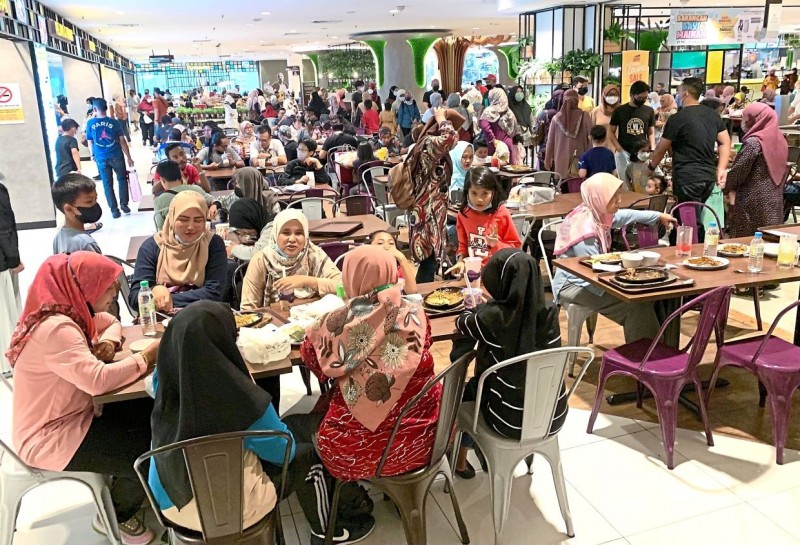
PETALING JAYA: A drizzle earlier in the day did not stop patrons from streaming continuously into his tau fu fah (soya bean curd dessert) stall.
Lau Teik Kip, the man behind the popular Woong Kee shop in Ipoh, was thankful that business had returned to pre-pandemic level.
“Before we were fully opened up, my stall in Bercham sold around 12 to 13 buckets of the dessert a day.
“Now, I need to top up by 20 buckets or more during the weekends,” he said when contacted yesterday.
Lau, 59, said that food businesses had been doing so much better, especially since the lifting of Covid-19 restrictions and Malaysia’s transition to endemicity that began in April.
The situation is similar for operators of ehailing rides.
“Our members who are full-time ehailing drivers said their income is at least 30% higher than when the country was not fully opened up,” said Malaysia E-hailing Drivers Association president Daryl Chong.
Weighing in, Associated Chinese Chambers of Commerce and Industry of Malaysia (ACCCIM) treasury-general Koong Lin Loong, said Malaysia’s transition into endemicity had spurred many economic activities and boosted sales.
“People now have choices. They can generally move around anywhere they want.
“From our members’ feedback, those in the trading business, departmental stores and food and beverage sectors have been seeing fantastic sales in the last two months, with some even dating back to January, thanks to the Chinese New Year festive season.
“The recent Hari Raya celebration, followed by the country’s border reopening, has also boosted trade and sales; even big-ticket items like cars are seeing good sales.
“Many popular venues for conventions and events in the Klang Valley are also fully-booked until the year-end,” he said, adding that most businesses dealing with consumers had recovered.
Koong, who is also ACCCIM’s small and medium enterprises (SMEs) committee chairman, said several factors spurred spending and recovery among businesses.
He attributed this to the country opening up, the pent-up demand, the EPF special withdrawal and the recent festive occasions, among other factors.
SME Association of Malaysia president Ding Hong Sing also said that some businesses such as the food and beverage sector recorded up to 150% growth in the last two months.
He said the significant increase was due partly to the government’s move to allow for a special EPF withdrawal.
“Businesses are doing very well, especially those in the food and beverage. Likewise for businesses operating in shopping malls.
“We have seen about 100%, some even up to 150% in sales in the past two months,” he told Sunday Star.
Malay Chamber of Commerce Malaysia president Abdul Halim Husin said food and tourism were among the sectors that were doing well.
“Food sales have been good, especially after the fasting month. Now traders can run their businesses almost as usual. The only thing is that they are affected by the hike in prices of goods.
“Some have had to close their businesses because there were not enough chickens.
“Those in tourism are expanding too since people are travelling more. During Hari Raya, many visited their relatives after two years of not being able to do so due to the pandemic,” he said.
Source: https://www.thestar.com.my/news/nation/2022/05/29/businesses-are-back-with-a-vengeance-as-sales-pick-up

